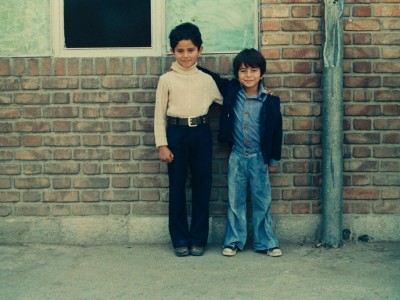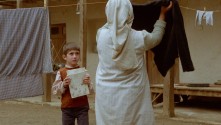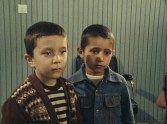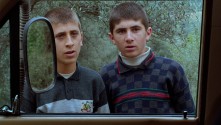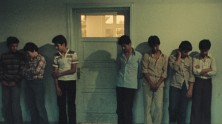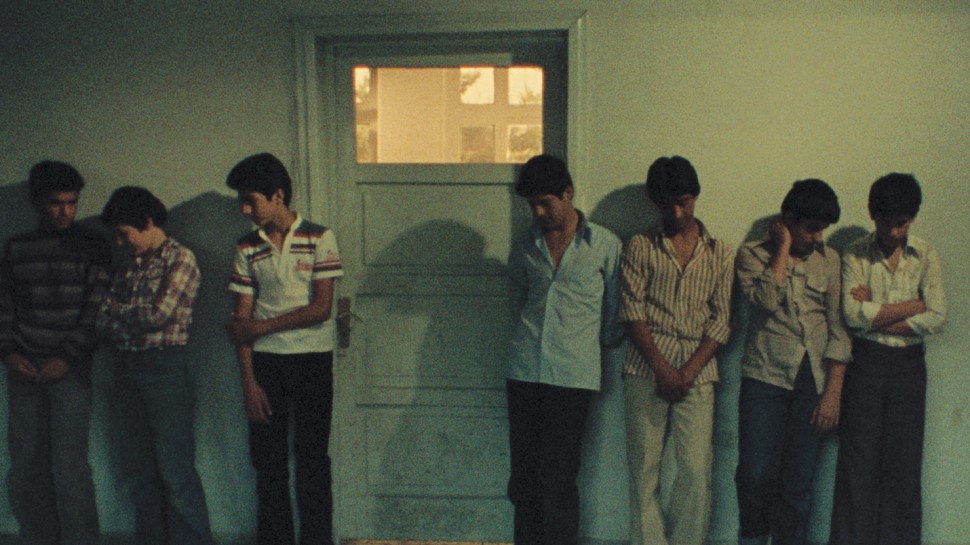
First Case, Second Case
(Ghazieh-e shekl-e aval, ghazieh-e shekl-e dou wom)
With Mehdi Azadbakht, Mohammadreza Barati, Hedayat Matin Daftari.
Iran, 1979, DCP, color, 53 min.
Persian with English subtitles.
DCP source: Janus Films
This banned and rarely seen pseudo-documentary by Kiarostami is a testimony to his seldom-acknowledged political shrewdness and his objective, complex perspective on the tumultuous events of the late 70s in Iran, culminating in the revolution. Remarkably, he achieved this without leaving his comfort zone—the classroom setting—and by staying faithful to his inquiring style, with its subtle, imaginative manipulation of recorded reality. Here, he also introduced the interview format into his body of work, putting his finger on the pulse of Iranian society by collaging conflicting viewpoints.
The premise is incredibly simple, almost a variation on his 1975 short Two Solutions for One Problem. A teacher is seen drawing a section of an ear on the blackboard (hence the theme of listening/surveillance). A student bangs his pen on the desk every time the teacher’s back is turned to the classroom. The teacher asks the students to name the culprit. They refuse. The teacher expels seven of the pupils, warning them that they will only be allowed back if they name the guilty party. The film is interrupted by Kiarostami showing footage of this incident to the parents of the students and some politicians, artists, writers—even the leaders of Jewish and Christian communities—asking them whether the students should stick together or name the guilty party.
The shoot began shortly before the revolution and continued until its aftermath, giving Kiarostami the idea to include the opinions of some members of the new regime. This brought new depth to the film, turning it into a fresh discourse on the key dilemmas of the Iranian revolution: betrayal or camaraderie; moral values or group integrity; human rights or ideological goals? The fate of the interviewees should tell us how right Kiarostami was in his usual wisdom and profound simplicity, as some of them were soon after imprisoned because of their political ideas, and at least one was executed. – Ehsan Khoshbakht
In this irreverent parable about revenge, Kiarostami explores the options two friends have when confronted with a dispute.
